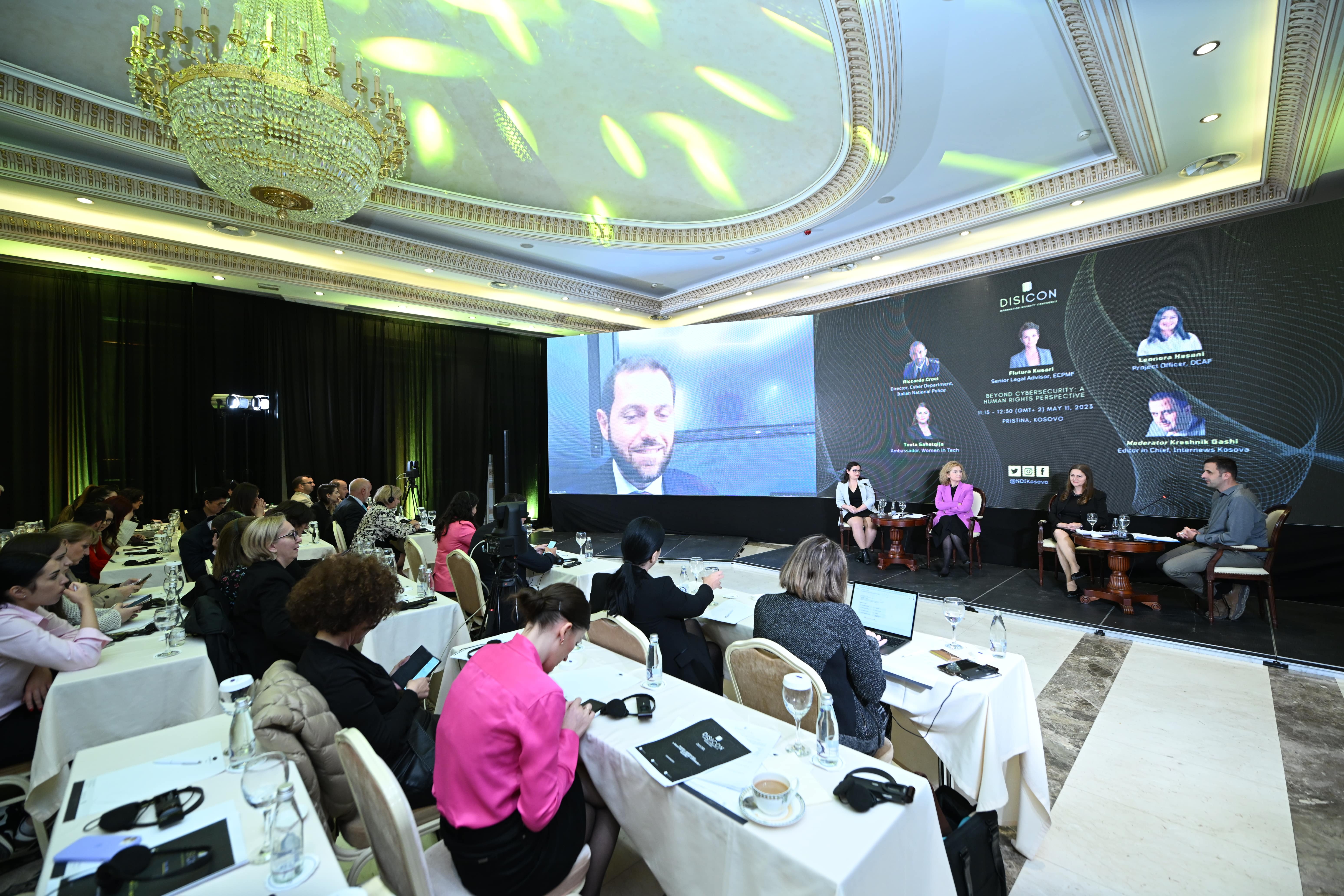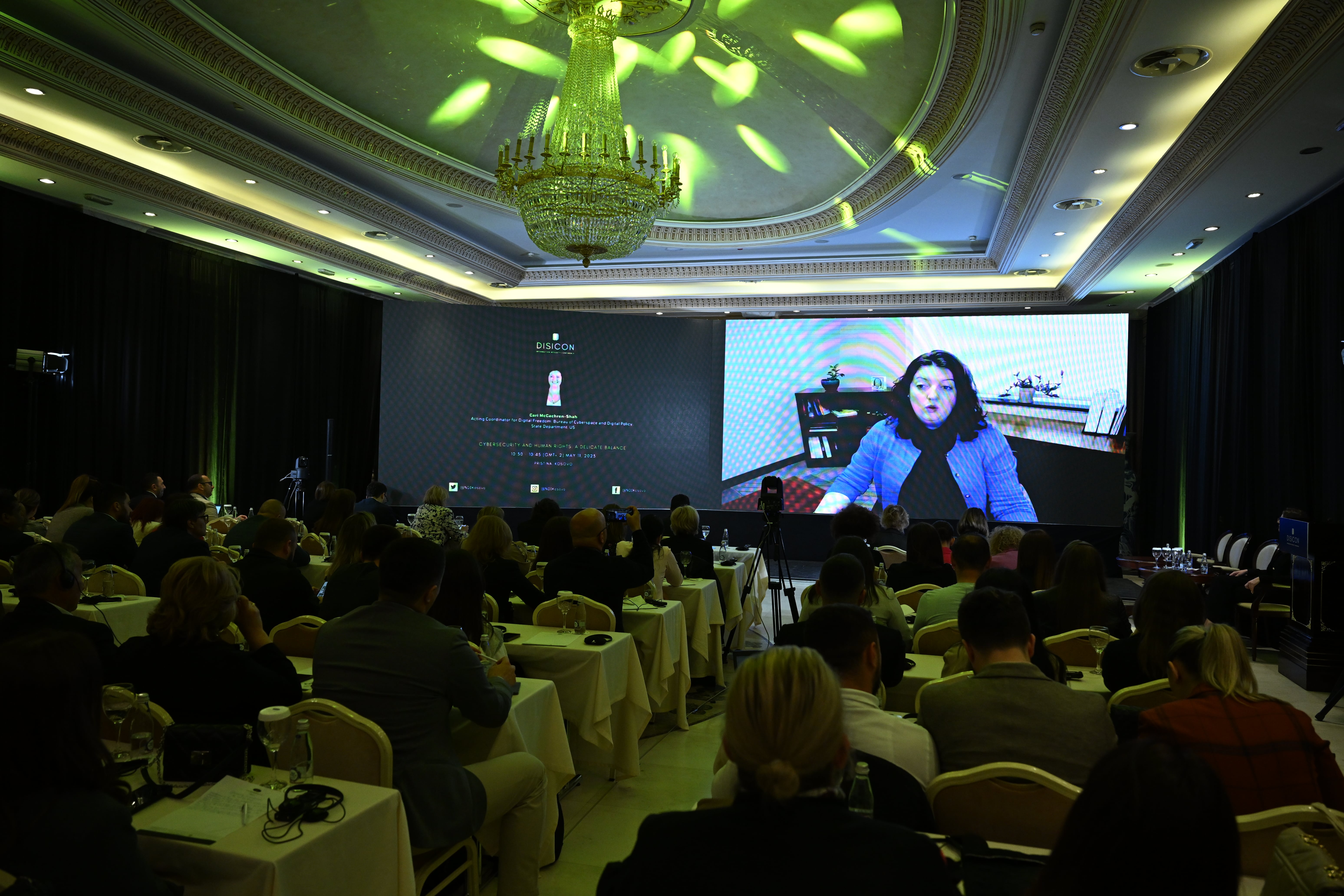Maj
15, 2023.
NGO 35 at DISICON 2023: Cybersecurity Conference Explores the Threat of Disinformation
The Information Integrity Conference, also known as DISICON, held on May 11, 2023, brought together experts, government officials, and cybersecurity professionals to discuss the growing threat of disinformation in the digital age. Hosted at the Swiss Diamond Hotel in Prishtina, Kosovo, the conference aimed to shed light on the challenges posed by disinformation and explore ways to counter this global security threat.

The conference commenced with an engaging opening ceremony featuring distinguished speakers from various organizations. Robert Benjamin, Senior Associate and Regional Director for Central and Eastern Europe Programs at NDI, US, along with Ambassador Jeffrey M. Hovenier from the United States Embassy in Kosovo, and AnnaCarin Platon, Head of the Political Section at the EU Office in Kosovo, delivered insightful opening remarks, emphasizing the importance of addressing cybersecurity and disinformation.
One of the key topics discussed during the conference was the delicate balance between cybersecurity and human rights. Cari McCachren-Shah, Acting Coordinator for Digital Freedom Bureau of Cyberspace and Digital Policy at the State Department, US, addressed the audience virtually, highlighting the need to strike a careful equilibrium between implementing necessary security measures and preserving individual freedoms.
DISICON also presented "Disistory," a platform that showcased the experiences of prominent individuals working in the field of cybersecurity, both locally in Kosovo and globally. Rina Basholli, Information Security Lead at KODE Labs in Kosovo/Detroit, shared her insights, providing attendees with a better understanding of cybersecurity and inspiring progress in this vital field.
A panel discussion focused on the intersection of cybersecurity and human rights, acknowledging the impact of technology and the internet on human rights, privacy, freedom of expression, and access to information. The panellists, including representatives from the Italian National Police, Women in Tech Kosovo, ECPMF Kosovo, and the Geneva Centre for Security Sector Governance, analyzed Kosovo's vulnerability to cyber threats, examined the current legal framework, and explored potential policy solutions for governments and private companies.

The conference also featured a keynote discussion with Prime Minister Albin Kurti, who emphasized the government's commitment to enhancing cybersecurity capabilities, bolstering cyber defence, and prioritizing strategic communication efforts to mitigate cyber risks.
Another important panel discussion centred around disinformation as a security threat, providing global perspectives on the propagation of disinformation and its challenges to national security. The panellists stressed the significance of countering disinformation collectively through the collaboration of governments, private companies, and individuals. They highlighted the role of technology in both spreading and combating disinformation.
The speakers and participants recognized the need to improve national cyber resilience throughout the event. Paolo Piccirillo, Vice President of Sales at Leonardo, Italy, addressed the audience virtually, presenting a practical approach to enhance national cyber resilience.
To raise awareness about the impact of cybersecurity on marginalized communities, a speaker shared stories and struggles faced by the LGBTQ+ community. Agon Rexhepi, a human rights activist from Kosovo, shed light on the online violence and hate speech targeting vulnerable groups, emphasizing the importance of fostering a safe and inclusive online environment.

The conference concluded with a hands-on workshop conducted by the Geneva Center for Security Governance - DCAF and the Metamorphosis Foundation from North Macedonia. Participants had the opportunity to engage in a cyber attack simulation exercise, which highlighted vulnerabilities that cybercriminals can exploit to cause significant harm.
The DISICON conference successfully brought together experts and stakeholders to address the pressing issue of disinformation in today's digital landscape. By fostering collaboration and sharing valuable insights, it contributed to the collective effort of countering cybersecurity threats and promoting a safe and secure online.



 Aktuelno
Aktuelno